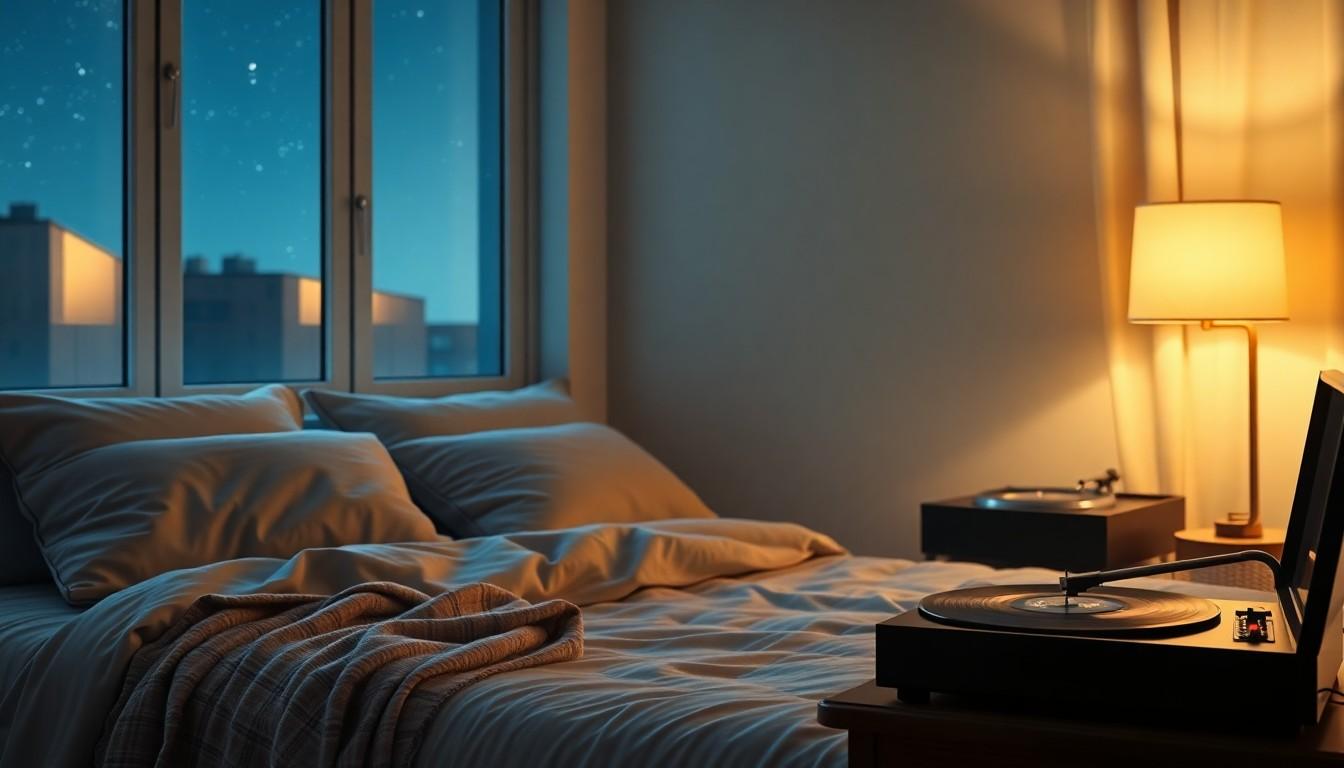When the world feels like a chaotic symphony of honking cars and buzzing phones, finding tranquility can seem impossible. Enter classical music—the soothing balm for restless minds. Imagine drifting off to sleep while the gentle strains of a cello lull you into a peaceful slumber. Who knew that Beethoven could be your bedtime buddy?
In a world where counting sheep just doesn’t cut it anymore, the right classical pieces can transform your nightly routine. From the calming notes of Debussy to the dreamy melodies of Chopin, this genre offers a treasure trove of sleep-inducing gems. So, grab your pajamas and prepare to serenade your senses, because the best classical music for sleep is about to turn your nightly routine into a soothing symphony.
Table of Contents
ToggleUnderstanding Classical Music and Sleep
Classical music plays a significant role in promoting relaxation and enhancing sleep. Various studies indicate that soothing melodies can influence brain activity, heart rate, and overall mood.
The Science Behind Music and Sleep
Research links music to improved sleep patterns. Listening to calming music can lower cortisol levels, the stress hormone. It also increases the production of melatonin, a key player in regulating sleep. Scientists found that individuals who listened to music at bedtime often experienced deeper sleep cycles. Moreover, sound waves in music can synchronize brain waves, promoting a tranquil state. The benefits of music extend beyond mere relaxation, creating an environment conducive to restful sleep.
How Classical Music Affects Sleep Quality
Classical music uniquely influences sleep quality. Many compositions feature slow tempos that promote a sense of calm. Soft dynamics allow listeners to unwind gradually, reducing anxiety. Studies show that classical works, especially those by composers like Beethoven and Debussy, can even help alleviate insomnia symptoms. By creating a peaceful atmosphere, classical music encourages longer periods of uninterrupted sleep. Incorporating these calming sounds into bedtime routines fosters not only relaxation but also rejuvenation during nighttime rest.
Top Recommendations for Best Classical Music for Sleep

Classical music offers a variety of compositions that enhance relaxation and improve sleep quality. Below are several curated pieces ideal for tranquil nights.
Soothing Pieces to Help You Fall Asleep
Gentle melodies provide comfort during bedtime. Clair de Lune by Debussy features soft piano notes that create a serene atmosphere. Nocturne in E-flat Major, Op. 9 No. 2 by Chopin enchants listeners with its delicate structure. Adagio for Strings by Barber plays softly, evoking a sense of calm. Each of these pieces invites tranquility, making them perfect companions for easing into sleep.
Longer Compositions for Extended Rest
Longer compositions sustain relaxation over extended periods. Symphony No. 3 in E-flat Major, Op. 55 (Eroica) by Beethoven has a gradual build-up that soothes the mind. The Four Seasons by Vivaldi, especially the slow movements, offers extended calm that lingers throughout the night. The Planets Suite by Holst includes movements like Venus, known for its peacefulness and harmony. These works foster an uninterrupted sleep experience, allowing individuals to drift deeper into rest.
Creating a Sleep-Friendly Environment with Music
Creating a peaceful sleep environment involves more than just choosing suitable music. Music’s volume and ambiance play crucial roles in relaxation and sleep quality.
Setting the Right Volume and Ambiance
Finding the right volume enhances the calming effects of classical music. Soft, gentle music helps promote relaxation without overwhelming the listener. Levels around 30-40 decibels mimic whispering sounds and create a soothing atmosphere. Choosing music with a gradual fade ensures a smooth transition into sleep. Ambient lighting also complements auditory experiences, enhancing the overall sense of calm. Soft lamps or dimmed lights paired with quiet melodies create a tranquil environment ideal for rest.
Choosing the Right Time to Listen
Timing music listening before sleep significantly impacts relaxation. Experts suggest starting calming classical music 30 to 60 minutes before bedtime to encourage winding down. This window allows listeners to detach from daily stressors while embracing soothing melodies. Listening during this period establishes a nightly routine that signals the brain to prepare for sleep. Incorporating music consistently fosters positive sleep associations, enhancing long-term sleep quality.
Personalizing Your Classical Music Experience
Personalizing a classical music experience ensures a more enjoyable and effective way to enhance sleep quality. Tailoring playlists to individual preferences and exploring various genres fosters a deeper connection to the music.
Customized Playlists for Different Sleep Styles
Creating customized playlists caters to specific sleep styles. Individuals who need gentle stimulation might enjoy Mozart’s “Piano Concerto No. 21,” while those who prefer soothing sounds could gravitate towards Satie’s “Gymnopédies.” For lighter sleep, lyrical works like Schubert’s “Ave Maria” provide comfort. A mix of tempo and dynamics ensures variety, allowing listeners to find comfort in music that resonates with their rest patterns. Selecting pieces that match one’s personal taste results in a more cohesive bedtime experience.
Exploring Variations in Classical Genres
Exploring variations in classical genres opens up more options for relaxation. Baroque compositions often offer rhythmic energy, making them suitable for those needing to unwind gently. Romantic works, such as those by Brahms, provide lush harmonies and emotional depth, fostering a calm atmosphere. Modern minimalist composers like Arvo Pärt and Philip Glass emphasize simplicity, ideal for those seeking a tranquil backdrop. Trying different genres and styles helps individuals discover which resonates most, enhancing the overall effectiveness in promoting restful sleep.
Embracing classical music as part of a bedtime routine can truly transform the sleep experience. The soothing melodies not only create a serene environment but also encourage relaxation and deeper sleep. By selecting the right pieces and personalizing playlists, listeners can find the perfect soundtrack for their nightly rituals.
Incorporating gentle sounds and maintaining an optimal sleep environment enhances the calming effects of music. This holistic approach to sleep can significantly improve overall well-being. With the right classical compositions, anyone can cultivate a peaceful atmosphere that fosters rejuvenation and restful nights.



